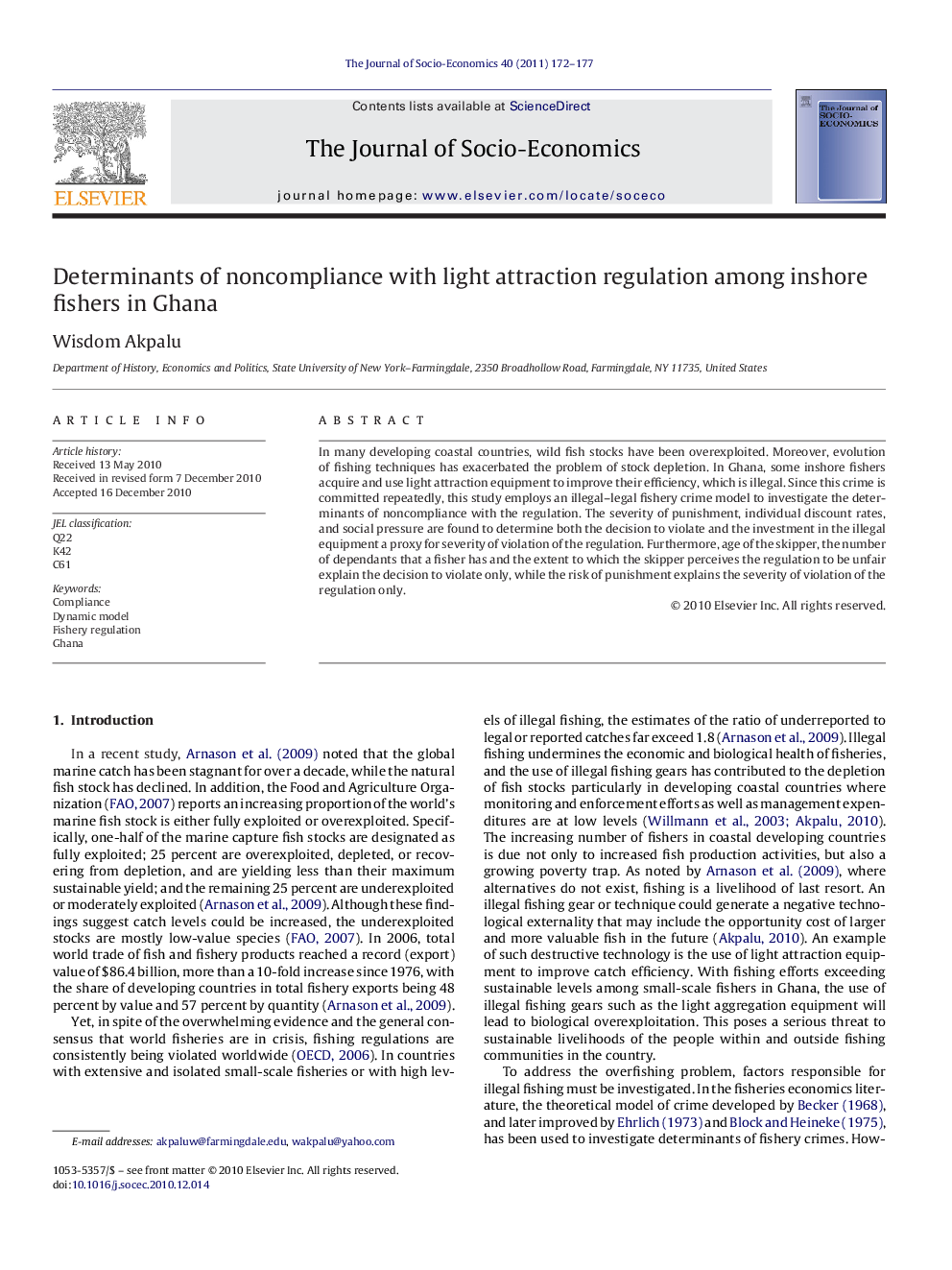| Article ID | Journal | Published Year | Pages | File Type |
|---|---|---|---|---|
| 970819 | The Journal of Socio-Economics | 2011 | 6 Pages |
In many developing coastal countries, wild fish stocks have been overexploited. Moreover, evolution of fishing techniques has exacerbated the problem of stock depletion. In Ghana, some inshore fishers acquire and use light attraction equipment to improve their efficiency, which is illegal. Since this crime is committed repeatedly, this study employs an illegal–legal fishery crime model to investigate the determinants of noncompliance with the regulation. The severity of punishment, individual discount rates, and social pressure are found to determine both the decision to violate and the investment in the illegal equipment a proxy for severity of violation of the regulation. Furthermore, age of the skipper, the number of dependants that a fisher has and the extent to which the skipper perceives the regulation to be unfair explain the decision to violate only, while the risk of punishment explains the severity of violation of the regulation only.
Research highlights▶ We employed an illegal–legal fishery crime model to investigate the determinants of noncompliance with light attraction regulation in Ghana. ▶ We found that severity of punishment, individual discount rates, and social pressure determine both the decision to violate and the severity of violation of the regulation. ▶ Furthermore, we found that age of the skipper, the number of dependants that a fisher has, and perceived fairness of the regulation explain the decision to violate only, while the risk of punishment explains the severity of violation of the regulation only.
